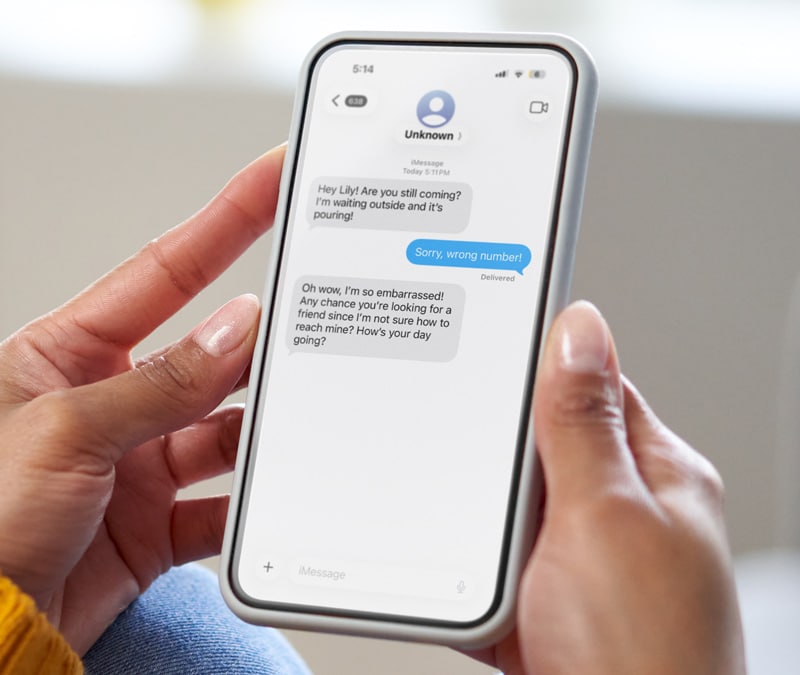Protecting yourself from charity scams
As the holidays approach, many of us are feeling the spirit of giving and looking for ways to spread cheer to those less fortunate. But beware! Scammers are lurking, ready to take advantage of good intentions.

As the holiday season approaches, it's time to brace ourselves for the tidal wave of holiday cheer, family gatherings and, of course, charitable giving. In fact, last year, Americans gave $499.33 billion to nonprofits, according to Giving USA. Who doesn’t love the warm, fuzzy feeling we get from helping those less fortunate, but what happens when that fuzzy feeling is accompanied by the sinking realization that you've been scammed?
A friend of mine, Tracy, learned this lesson the hard way last year. She fell victim to a charity scam that seemed so real and legitimate. It all started when she received an email from a charity organization that claimed to be helping families in need of warm meals and beds over the holidays. The email stated how, “Even just $10 helps a family of four.” Who could say no to helping in this situation? It’s practically the same price as her daily latte. As a mother to two young children, that hit Tracy right in gut. The email was well-written and included heart-wrenching stories and images of families and their children. She felt compelled to help.
She hovered over the link in the email to make sure it seemed legitimate (always a smart tactic), clicked, and was taken to a website that looked professional and trustworthy. She filled out a donation form and entered her credit card information. She was happy and feeling good about the fact that she was making a difference in the lives of, maybe, at least one family. However, a few days later, Tracy noticed a series of unauthorized charges on her credit card statement and immediately contacted her credit card company to report the fraudulent activity.
As it turns out, the charity organization was a fake. The website visited was a phishing site designed to steal personal and financial information. She was devastated. Not only had she lost money, but Tracy also felt like she’d been taken advantage of, even betrayed. She couldn't believe that someone would exploit the kindness and generosity of people for their own gain. Luckily Tracy was able to recover stolen funds by working with her bank—but nothing repairs the trust she lost.
After this experience, Tracy became much more cautious and vigilant about online charity scams. While she didn’t let these Grinches harden her heart, she did learn that there are many ways that cybercriminals may trick people into donating to fake charities --and she’s not alone. According to the Federal Trade Commission, in 2022 fraudsters scored $8.8 billion. It’s not just through fake websites. There are social media profiles that look identical to legitimate charities, phone scam spoofing to show up on caller ID as a charity name, sham crowd-funding stories --the list is ever-changing with technology.
6 Tips to help avoid charity scams
I appreciate Tracy sharing her story; it's the best thing for her to do to help others from falling victim as well. However, it’s also important to take some of these other precautions:
- Verify the legitimacy of the charity: Before donating, do some research to ensure it is real. Websites like Charity Navigator or the Better Business Bureau's Wise Giving Alliance are here to help. Even a quick search of the name may pull up some interesting reviews.
- Be cautious of unsolicited emails, social media messages, texts, and phone calls: If you receive an email or social media message from a charity that you have never heard of, continue with caution. Cybercriminals often use these channels to send fake donation appeals or for phishing attacks. Verify the phone number for a charity that calls or texts you; check the charity's official website to see if the number you have is legitimate.
- Look for secure websites: When donating online, look for a padlock icon in the address bar and check that the website starts with "https://". This shows that the website uses a secure connection to protect your information.
- Use a credit card: Credit cards offer more protection against fraud than other payment methods, and you may dispute unauthorized charges.
- Keep records of your donations: Include the date, amount, and the name of the charity. This information will help you keep track of your giving and may be useful if you need to dispute a fraudulent charge.
- Beware of emotional appeals: Just like what happened to Tracy, scammers often use emotional appeals to tug at your heartstrings. While it's natural to want to help those in need, be cautious of any charity that uses high-pressure tactics or tries to make you feel guilty if you don't donate.
There’s no reason to stop from giving this season, even if there’s Grinches out there who want to ruin it for us all. It just takes a little extra vigilance and some due diligence to make sure your donations are getting into the right hands, something that Norton Genie may surely help with. This AI-powered scam detection tool scans emails, social media messages, and more so you may know if something is fake or not. And yes, Tracy now has it on her mobile phone—as do I.
Happy holidays and don’t let scammers dampen your spirit. With the right tips and tools, you can outsmart them!
Editorial note: Our articles provide educational information for you. Our offerings may not cover or protect against every type of crime, fraud, or threat we write about. Our goal is to increase awareness about Cyber Safety. Please review complete Terms during enrollment or setup. Remember that no one can prevent all identity theft or cybercrime, and that LifeLock does not monitor all transactions at all businesses. The Norton and LifeLock brands are part of Gen Digital Inc.





Want more?
Follow us for all the latest news, tips, and updates.